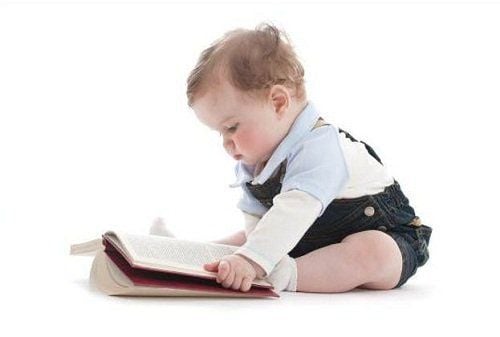This is an automatically translated article.
The article is professionally consulted by Resident Doctor Ho Thi Hong Tho - Neonatologist - Pediatrics - Neonatology Department - Vinmec Phu Quoc International General Hospital
After the baby is born, the baby has a developmental milestone through each stage that makes his parents always go from one surprise to another. One of those milestones that need to be mentioned is that the baby learns to hold objects. So at this time, what should parents do to support their children to develop this skill comprehensively?
1. Why is the skill of holding objects an important milestone?
Learning to hold objects helps your baby to play and use his hands more flexibly. Being able to hold objects is also the first step on the path to helping your baby eat, read, write, draw, and take care of himself.2. How does a child's grasping ability develop?
It will take children at least 1 year to develop the coordination ability to pick up and hold objects firmly in their hands. This skill will develop after the baby is 3 months and after this time the child's development ability takes a leap.
2.1 Newborn until 2 months of age Babies are born with the grasp reflex. During this time, babies learn to make fists and their hands will mostly form fists, but soon they'll be able to open their hands and be able to hold them.
2.2 When your baby is 3 months old At this stage babies are developing hand-eye coordination, noticing things they want to hold and trying to grab and hold them.

Khi trẻ được 3 tháng, trẻ muốn cầm và cố gắng lấy và cầm lấy chúng
2.3 When baby is 4 to 8 months At 4 months, baby can pick up large objects. However, baby won't be able to grasp small objects like peas, until baby develops fingers will become should be more clever.
This is also the period when the child's first tooth grows, so parents need to pay attention to the child picking up things to put in his mouth.
2.4 When your baby is 9 to 12 months old at this stage babies can pick up objects more easily than before and they are perfecting their ability to hold small objects better.
In addition, children can firmly grasp a spoon or fork and use it during meals. Once she can grasp everything, she will start throwing things away
When she is 18 months old, her artistic ability will be evident, and she will be fascinated with crayons or objects with many different colors. colourful. By age 3, children can hold a pen and draw or scribble.
3. The role of parents in helping children develop grasping skills
To stimulate the baby's grasp reflex, try placing toys or objects with colors that attract the baby, but the placement will be out of the baby's reach and you will create conditions to encourage the baby to move come and take these objects.
However, don't disappoint your baby by placing this object too far away for her to reach. Give your baby a variety of objects that she can easily grasp, such as soft blocks, plastic rings, and board books.
Then, when your baby exercises more flexible grasping skills, this time encourage him to use a spoon and fork during meals so he can take food on his own. To prevent your baby from choking, you should keep hard foods (like nuts or raw carrots) away from your baby.

Cha mẹ khuyến khích trẻ cầm nắm giúp kỹ năng cầm nắm của trẻ được linh hoạt hơn
However, by 2 to 3 months, if the child still does not seem interested interested in toys or other objects, unable to grasp objects, then you can consult your pediatrician.
In the process of taking care of children, parents who have concerns or need consultation, you can take the child to the Pediatrics Department at Vinmec General Hospital for advice and examination by experts. In addition, to help children achieve important milestones, parents should supplement children with supporting products containing lysine, essential micro-minerals and vitamins such as zinc, chromium, selenium, and B vitamins. meet the nutritional needs of children. At the same time, these essential vitamins also support digestion, enhance nutrient absorption, help improve anorexia, help children eat well, and develop comprehensively.
Please regularly visit Vinmec.com website and update useful information to take care of your baby and family.
Reference source: babycenter.com














